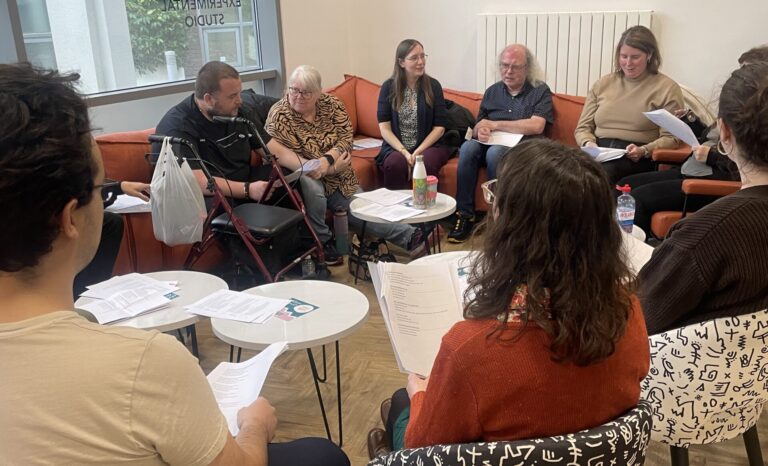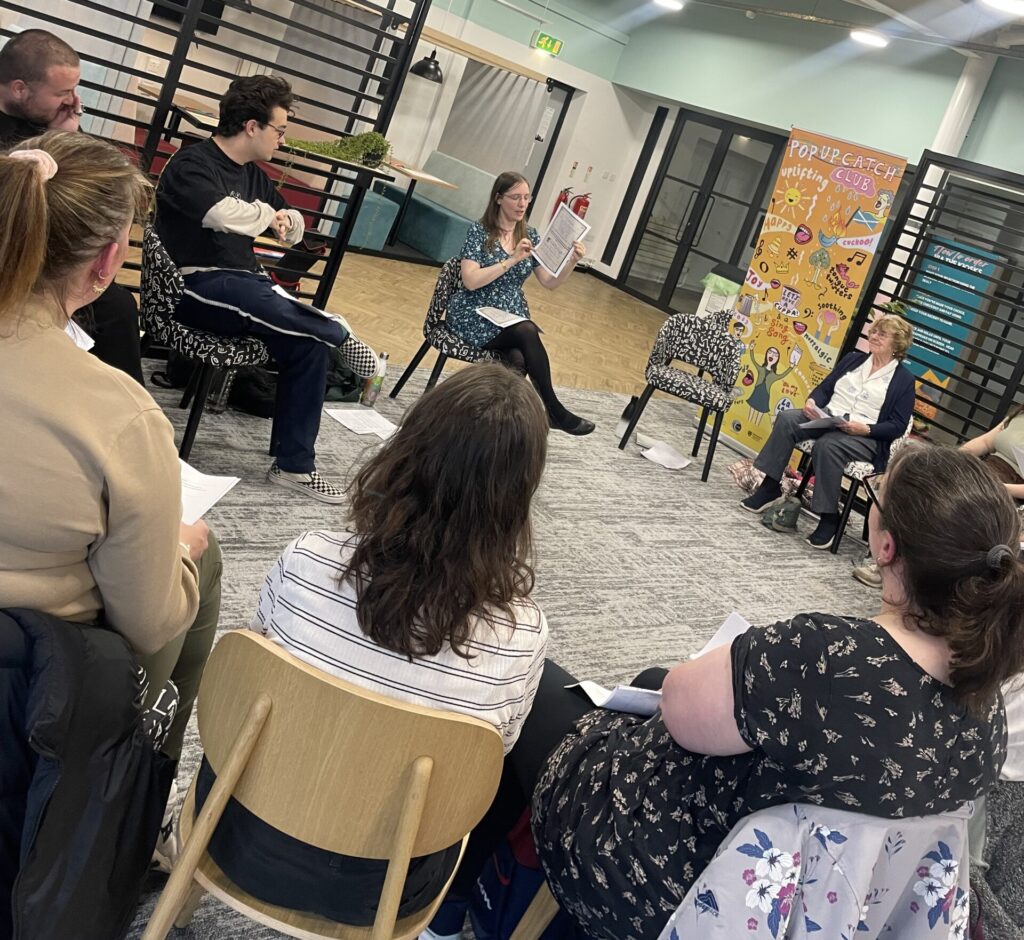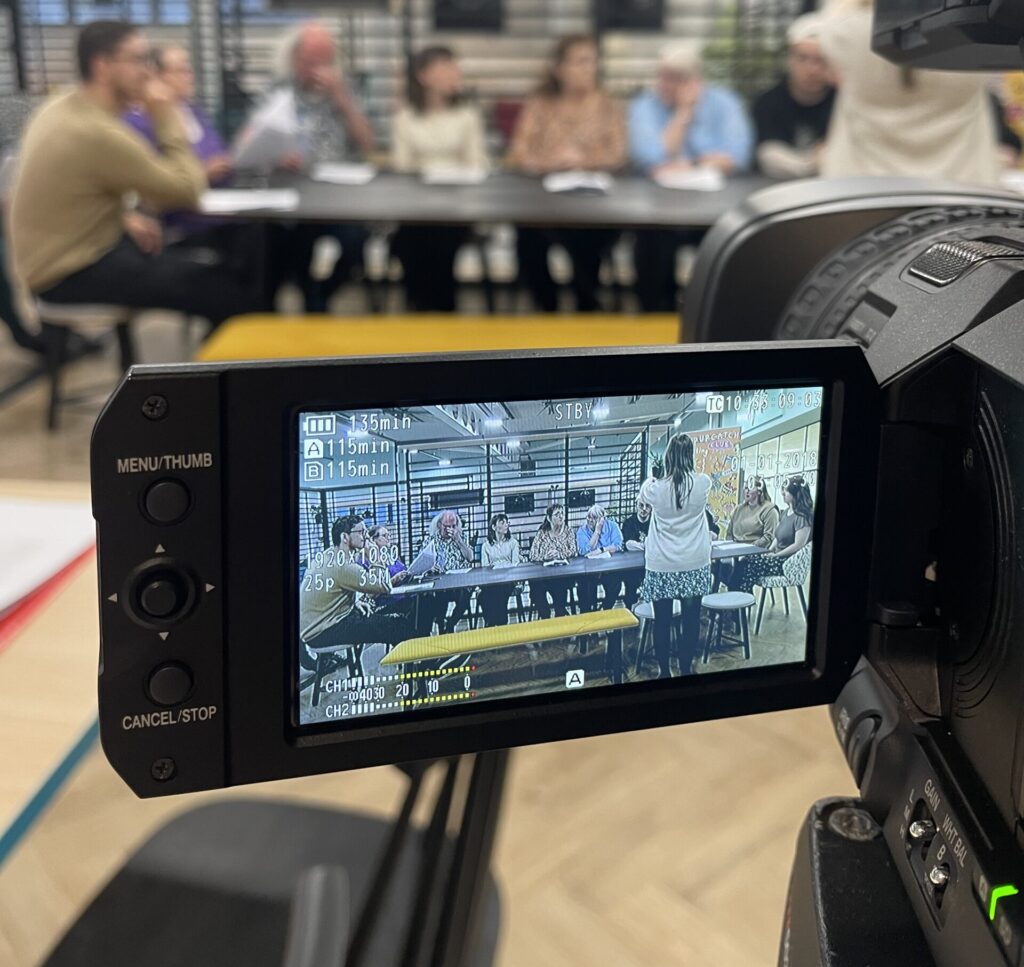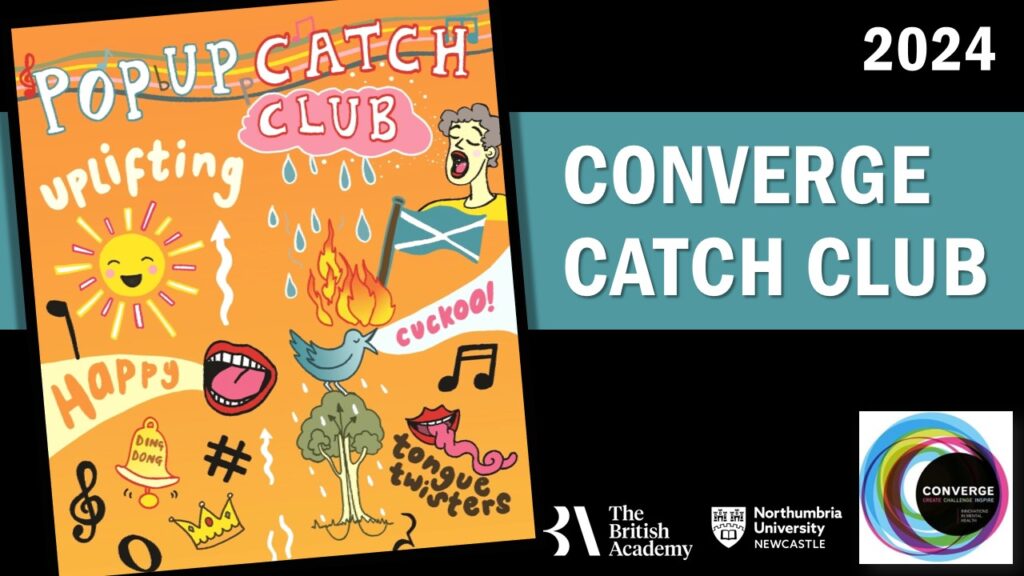Recently I’ve been meeting with Converge Students (all of whom are adult who have experienced or are experiencing mental health challenges) for a series of four workshops exploring Tudor catch-singing. We’ve been experimenting with learning to sing various types of catches, finding our a bit about their original history, creating our own catches, and reflecting on what we’re getting out of coming together to sing informally in this way. This blog showcases the singing and reflections of Converge students during the workshops.

As you can see in the photo we did not try to be a choir so much as a group of friends coming together to sing for fun. All voices were welcome and we mixed men’s and women’s voices across the parts. The Lipman Hub provided a relaxed and sociable venue. One participant (a returner from my pilot workshop) reflected on why she’d come back for more:
Almost all workshop participants were new to singing (let along singing in harmony): 75% described their singing experiences as non-existent or minimal, with with only 14% considering themselves as confident singers. A few had attended a pilot catch-singing workshop I held last November, but beyond that none had sung or listened to any early music before.

Over the weeks we tried a range of songs – some easy and some trickier. There were tongue-twisters, actions, dialogue, and songs that made us laugh, and songs that took us on a tour through the places and spaces of Tudor England. We even acted out a scene from Shakespeare’s Twelfth Night which includes the catch Hold thy Peace.
At the end of the series of workshops everyone was confident enough to come together and video-record a few of the group’s favourite catches from across the four weeks (and 60% now described themselves as confident singers!)
These songs include Tudor versions of tunes known today (Scotland it Burneth – better known as London’s Burning), tongue-twisters (Kit and Tom Chid-a), songs from Jacobean plays (Hey Ho Nobody at Home), and song capturing the Tudor soundscape (New Oysters! and All into Service, the latter imitating bells). Our most challenging song was Sing After Fellows which combines three different Tudor popular tunes.
As well as singing songs from the past, we were also inspired to write our own catches. Check out our Newcastle Catch in the video below. Inspired by New Oysters! – which imitates and combines sounds from Tudor London – the group composed their own version reflecting modern Newcastle. Listen out for trains at the station, voices in Newcastle dialect, and an excited hen party!
One of the things we noticed over the course of the weeks was how easily we connected as a group in just 4 weeks and how positive the singing made us feel (even on some very wet and gloomy autumn evenings!) While in week 1 only 22% of participants felt their happiness and wellbeing was good, by the final week it was 100% and 100% felt a strong sense of connection and belonging.
Big thanks to Converge Northumbria (especially Cat and Adam) for hosting the workshops and singers Eimear Hurley, Isobel Randall-Evans, Michael Winter and Liza Prins for supporting. I’ll leave the final word to the Converge students:

